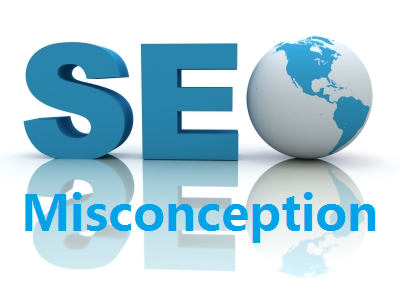Misconceptions about search engine optimization are quite common and most of them are due to the differences in opinion by supposed industry experts. With the wealth of resources about search optimization and online marketing available on the web, it is not difficult to find good information about these kinds of discussions, but always proceed with caution lest you fall trap to these common misconceptions:

- The first misconception is that meta description and title tag cut-off occurs at a specific character count. While keeping your title tags under 70 characters is still a good advice, there is no truth that Google cuts short your Meta descriptions and title tags once you reach a particular number of characters. Rather, search engines (or at least Google) do so when you exceed their allowable pixel-width for titles and meta descriptions. This is relevant because a few extra characters in your title tag or your meta description can make or break that potential clickthrough. You don’t want to lose valuable traffic because of something as small as a missing character that makes the point to your page undecipherable.
- Another misconception is that 302 redirects are same as 301 in terms of passing links value. Though, these redirects appear the same for users, 301 permanent redirect is the only advisable solution if you want to transfer link value from a URL to another URL.
- Some people also mistakenly think that regardless of your website’s size, you should accomplish and submit a single XML sitemap. The value of an XML sitemap is obvious, in fact it is one of the greatest SEO tools. Sitemaps help search engines understand website URLs better and make them crawl your pages better, however, it is not always possible to compile all the URLs into a single XML sitemap. Many modern websites, especially online retailers, can potentially have hundreds of thousands of URLs on their website and distributing website URLs into multiple XML sitemaps is a great idea.
- Another rather popular misconception about XML sitemap is that submitting it into Google Search Console (previously Webmaster Tools) is all that’s required for making a site search engine friendly. It is important to remember that submitting an XML sitemap doesn’t necessarily excuse poor website architecture.
As an added bonus, another common SEO misconception SMEs and website owners believe is that disavowing bad links will return their website to their pre-Penguin standing. Disavowing links, especially a good amount of links is akin to removing the frail and delicate foundation boards of a structure that’s already in ruins or is one slab away from tipping over. When you have been penalized because of bad links, the damage has been done and the fall has already started. Removing bad foundation (disavowing bad links) is only the start of your clean-up and rebuilding. Thinking that you will recover your lost rankings once you get rid of your problematic links is not only wishful, but irresponsible, because you have plenty of rebuilding to do before you get to the same level as your pre-penalty days. However, just because your rankings have plummeted way down doesn’t mean you can’t recover from the rut.










